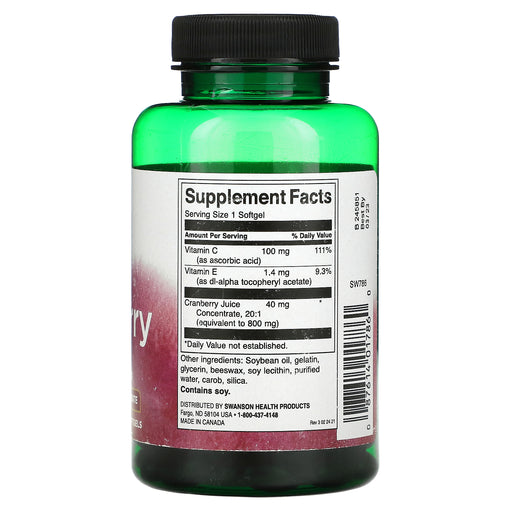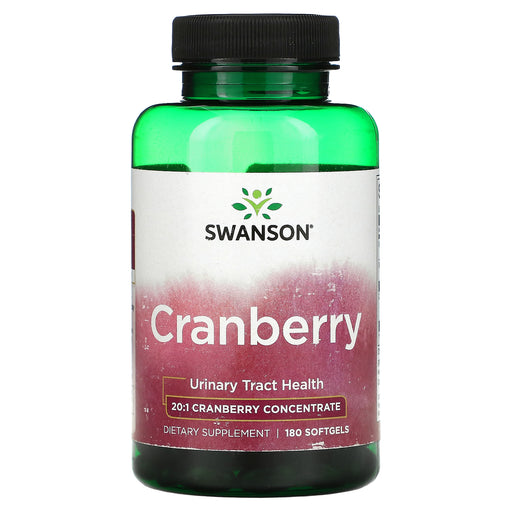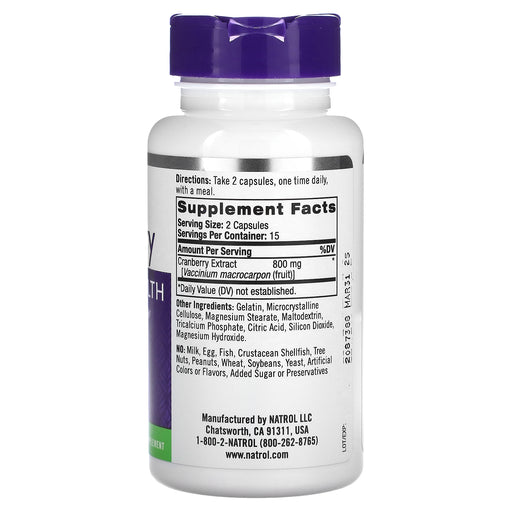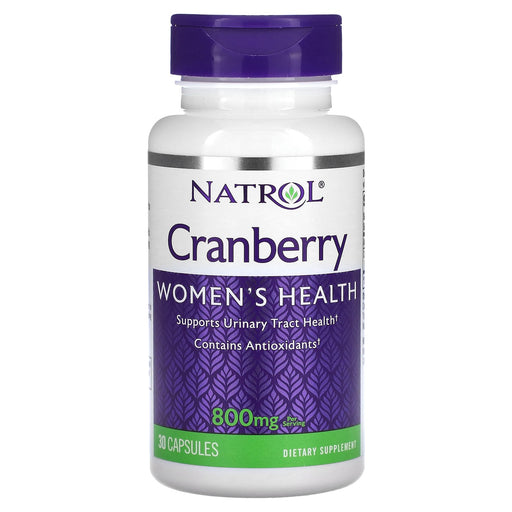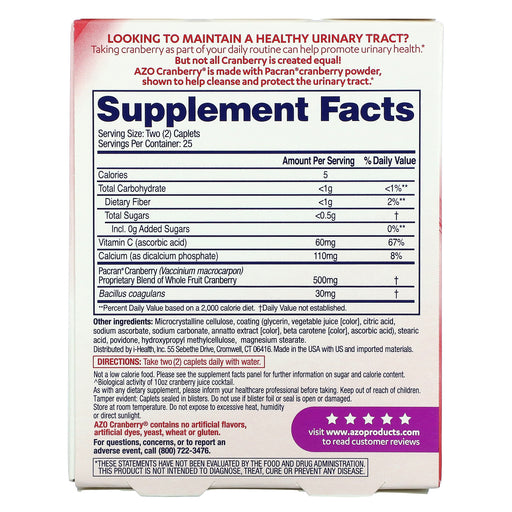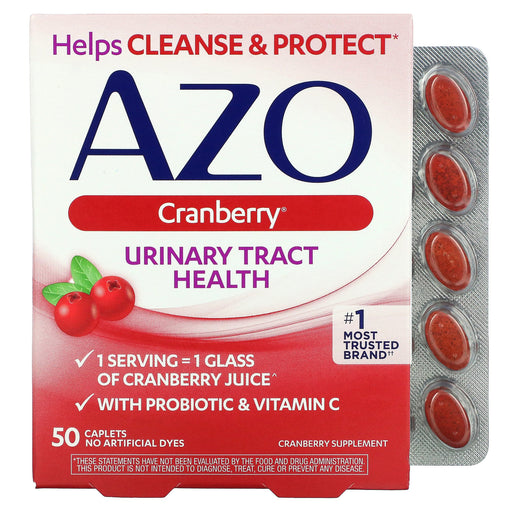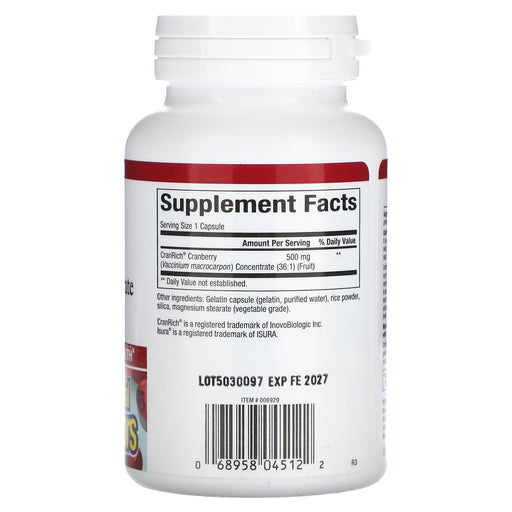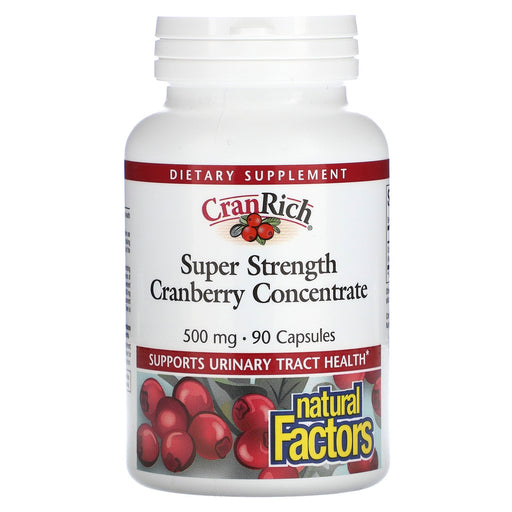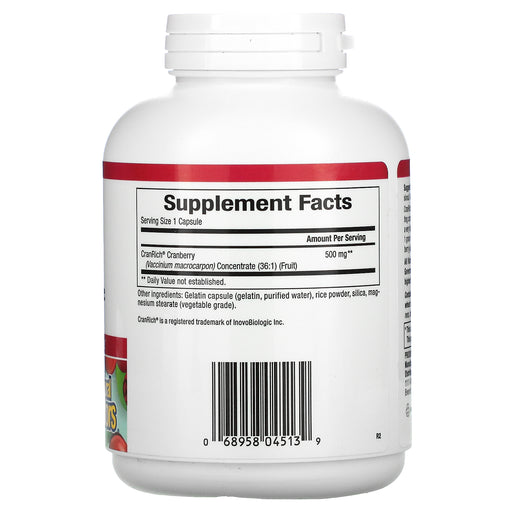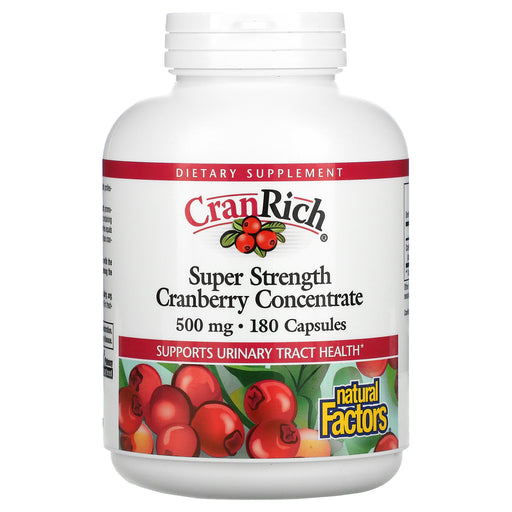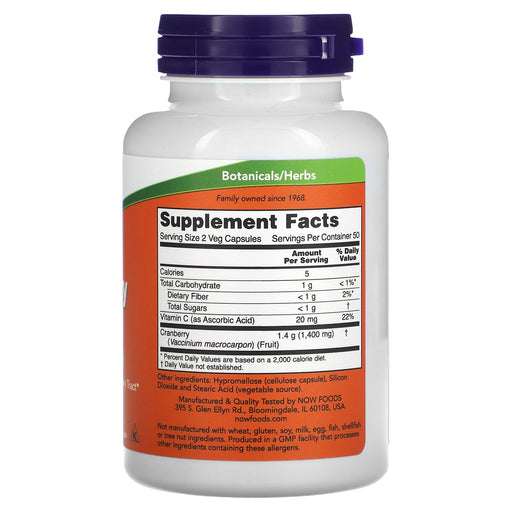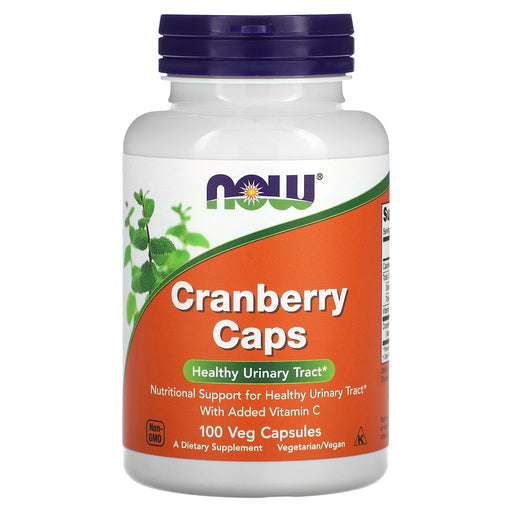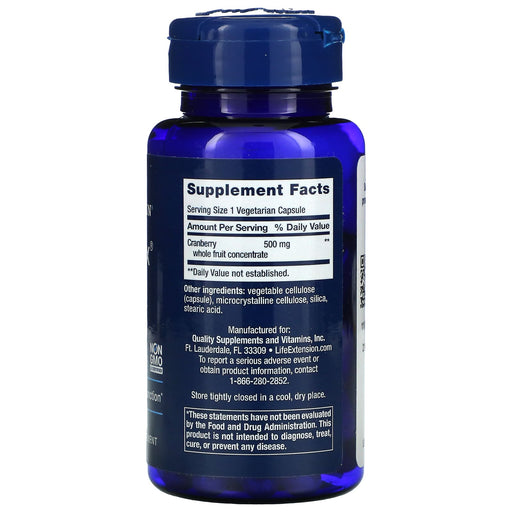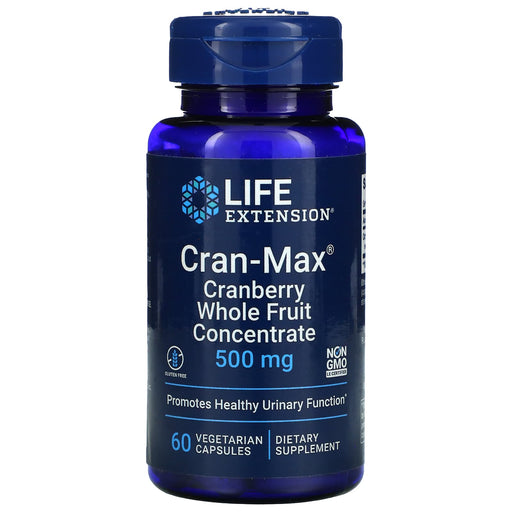
Unleash the Power of Cranberry for Urinary Tract Health and Beyond
Cranberries have long been recognized for their unique health benefits, particularly in supporting urinary tract health and preventing infections. These tart, nutrient-dense berries are packed with potent compounds that not only promote a healthy urinary system but also offer a range of other potential health benefits. By incorporating cranberry supplements into your wellness routine, you can harness the power of this superfruit to support your overall health and vitality.
The Unique Composition of Cranberries
Cranberries are rich in various bioactive compounds that contribute to their health-promoting properties, including:
- Proanthocyanidins (PACs): Unique polyphenols with potent antioxidant and anti-adhesion properties, which help prevent harmful bacteria from adhering to the urinary tract walls and causing infections.
- Flavonoids: Powerful antioxidants like quercetin and myricetin that help protect cells from damage caused by free radicals and oxidative stress.
- Vitamin C: A potent antioxidant that supports immune function, collagen production, and overall health.
- Fiber: Soluble and insoluble fibers that promote digestive health, regularity, and a healthy gut microbiome.
- Essential Micronutrients: Cranberries contain small amounts of essential vitamins and minerals, such as vitamin E, vitamin K, manganese, and copper, which contribute to overall health and well-being.
These unique compounds work synergistically to provide the potential health benefits associated with cranberry supplementation.
Benefits of Cranberry Supplementation
Incorporating cranberry supplements into your wellness routine may offer several potential benefits, including:
- Urinary Tract Health: The PACs in cranberries help prevent harmful bacteria, particularly E. coli, from adhering to the urinary tract walls, reducing the risk of urinary tract infections (UTIs) and promoting overall urinary health.
- Antioxidant Protection: The high content of antioxidants in cranberries, including flavonoids and vitamin C, helps protect cells from damage caused by free radicals and oxidative stress, supporting overall health and well-being.
- Digestive Health: The fiber content in cranberries promotes regular bowel movements, supports a healthy gut microbiome, and may help reduce the risk of digestive disorders.
- Cardiovascular Support: Some studies suggest that the polyphenols in cranberries may help support heart health by promoting healthy blood pressure levels and improving blood lipid profiles.
- Immune System Support: The vitamin C and other bioactive compounds in cranberries may help support immune function and the body's natural defenses against harmful pathogens.
Choosing the Best Cranberry Supplement
When selecting a cranberry supplement, it's essential to choose a high-quality product from a trusted brand. Consider the following factors:
- PAC Content: Look for supplements that contain a standardized amount of proanthocyanidins (PACs), the key compounds responsible for cranberries' urinary tract health benefits.
- Quality and Purity: Opt for supplements manufactured in GMP-certified facilities, free from contaminants and impurities, and third-party tested for purity and potency.
- Concentration and Dosage: Choose supplements that provide a concentrated cranberry extract or juice powder, delivering a therapeutic dose of bioactive compounds in a convenient serving size.
- Synergistic Ingredients: Some cranberry supplements may include additional ingredients like vitamin C, probiotics, or other herbs that support urinary tract health and overall well-being.
- Brand Reputation: Select supplements from reputable brands with a history of producing high-quality, science-backed products and a commitment to transparency and safety.
Tips for Incorporating Cranberry Supplements into Your Wellness Routine
To maximize the benefits of cranberry supplements and support your urinary tract health and overall well-being, consider the following tips:
- Stay Hydrated: Drink plenty of water throughout the day to help flush out harmful bacteria and promote healthy urine flow, enhancing the effectiveness of cranberry supplements.
- Take Consistently: To experience the full potential benefits of cranberry supplementation, take your supplement consistently as directed, typically once or twice daily.
- Pair with a Balanced Diet: While cranberry supplements can provide targeted support, they should be used in conjunction with a balanced diet rich in whole foods, fruits, vegetables, and other nutrient-dense sources.
- Consider Timing: Some people find it helpful to take cranberry supplements with meals or in the evening to support urinary tract health throughout the night.
- Consult with a Healthcare Professional: If you have a history of urinary tract issues, are pregnant or nursing, or are taking medications, consult with a healthcare professional before starting any new supplement regimen.
Experience the Urinary Tract Support and Overall Health Benefits of Cranberry with Health Orchard
Promote your urinary tract health and overall well-being with Health Orchard's selection of high-quality, potent cranberry supplements. Our carefully curated collection offers a range of options to suit your individual needs and preferences, from concentrated extracts to synergistic blends.
Witness the power of this antioxidant-rich superfruit to support your urinary system, digestive health, cardiovascular function, and immune defenses. With a commitment to quality, efficacy, and your individual wellness goals, Health Orchard is your trusted partner in harnessing the goodness of cranberries for optimal vitality.
Frequently Asked Questions about Cranberry
1. What does cranberry supplement do?
Cranberry supplements are derived from cranberries and are rich in various beneficial compounds, such as proanthocyanidins (PACs), which are known for their antioxidant and anti-inflammatory properties. These supplements are commonly used for the following purposes:
- Urinary tract health: Cranberry supplements are most well-known for their ability to support urinary tract health. The PACs in cranberries may help prevent certain bacteria, particularly E. coli, from adhering to the urinary tract walls, thus reducing the risk of urinary tract infections (UTIs)
- Antioxidant support: The high antioxidant content in cranberry supplements may help protect cells from damage caused by free radicals, which are associated with oxidative stress and various chronic diseases
- Heart health: Some studies suggest that cranberry supplements may help support heart health by improving blood lipid profiles and reducing inflammation
- Digestive health: Cranberries contain compounds that may help promote a healthy balance of gut bacteria and support overall digestive health
- Immune function: The antioxidants and other beneficial compounds in cranberry supplements may help support immune function and protect against harmful pathogens
2. Is it okay to take cranberry pills every day?
Yes, it is generally considered safe to take cranberry supplements daily, as long as you follow the recommended dosage instructions provided by the manufacturer or your healthcare professional. Cranberry supplements are typically well-tolerated, and many people use them on a daily basis to support urinary tract health and overall well-being.
However, there are a few considerations to keep in mind:
- Interactions with medications: Cranberry supplements may interact with certain medications, such as blood thinners like warfarin, so it is essential to consult with a healthcare professional before starting a cranberry supplement regimen if you are taking any medications
- Dosage: Stick to the recommended dosage on the product label or as advised by your healthcare provider. Excessive intake of cranberry supplements may lead to adverse effects, such as digestive discomfort or increased risk of kidney stones in some individuals
- Individual needs: The appropriate dosage and duration of cranberry supplement use may vary depending on your individual health needs and conditions. For example, some people may use cranberry supplements daily for long-term urinary tract support, while others may only use them for a short period to help manage acute UTI symptoms
3. What can cranberry do for your body?
Cranberries and cranberry supplements can offer several potential benefits for your body:
- Urinary tract health: Cranberries contain proanthocyanidins (PACs) that may help prevent certain bacteria, particularly E. coli, from adhering to the urinary tract walls, thus reducing the risk of urinary tract infections (UTIs)
- Antioxidant support: Cranberries are rich in antioxidants, such as vitamin C, vitamin E, and various polyphenols, which may help protect cells from damage caused by free radicals and oxidative stress
- Heart health: Some studies suggest that cranberries may help support heart health by improving blood lipid profiles, reducing inflammation, and promoting healthy blood pressure levels
- Digestive health: Cranberries contain compounds that may help promote a healthy balance of gut bacteria and support overall digestive health. They may also help prevent the growth of harmful bacteria, such as H. pylori, which is associated with stomach ulcers
- Immune function: The antioxidants and other beneficial compounds in cranberries may help support immune function and protect against harmful pathogens
- Oral health: Some research suggests that cranberries may help prevent the growth of bacteria associated with dental plaque and gum disease
- Skin health: The antioxidants in cranberries may help protect the skin from damage caused by UV radiation and other environmental stressors, promoting a more youthful appearance
4. Are cranberry pills good for kidneys?
Cranberry supplements may offer some potential benefits for kidney health, but the evidence is mixed, and they should not be considered a sole treatment for kidney conditions. Here's what you should know:
- Urinary tract support: Cranberries are most well-known for their ability to support urinary tract health by preventing certain bacteria from adhering to the urinary tract walls.
- Antioxidant properties: Cranberries are rich in antioxidants, which may help protect kidney cells from damage caused by oxidative stress and inflammation.
- Kidney stone prevention: Some studies suggest that cranberry supplements may help reduce the risk of certain types of kidney stones, particularly calcium oxalate stones.
- Interactions with medications: It is important to note that cranberry supplements may interact with certain medications, such as blood thinners and medications that affect kidney function
- Dosage and individual needs: The appropriate dosage and duration of cranberry supplement use for kidney health may vary depending on your individual health status and conditions.
5. Do cranberries cleanse kidneys?
Cranberries and cranberry supplements do not directly cleanse the kidneys, but they may help support kidney health in several ways:
- Urinary tract support: Cranberries contain compounds called proanthocyanidins (PACs) that may help prevent certain bacteria, particularly E. coli, from adhering to the urinary tract walls. By reducing the risk of urinary tract infections (UTIs), cranberries may indirectly support kidney health, as untreated UTIs can sometimes lead to kidney infections
- Antioxidant properties: Cranberries are rich in antioxidants, such as vitamin C, vitamin E, and various polyphenols, which may help protect kidney cells from damage caused by oxidative stress and inflammation. Some animal studies suggest that cranberry extract may help reduce markers of kidney damage and improve kidney function
- Fluid balance: Drinking cranberry juice or taking cranberry supplements may help increase urine flow, which can help flush out bacteria and other harmful substances from the urinary tract. This increased fluid intake may also help support overall kidney function
6. Can cranberry lower creatinine levels?
Cranberries and cranberry supplements may have some potential effects on creatinine levels, but the evidence is limited and mixed. Creatinine is a waste product produced by muscle metabolism and is normally filtered out of the blood by the kidneys. High creatinine levels can be a marker of impaired kidney function.
- Antioxidant properties: Some studies suggest that the antioxidants in cranberries, such as proanthocyanidins (PACs) and other polyphenols, may help protect kidney cells from damage caused by oxidative stress and inflammation. This protective effect may help support overall kidney function and potentially lower creatinine levels. However, more research is needed to confirm this effect in humans
- Fluid balance: Drinking cranberry juice or taking cranberry supplements may help increase urine flow, which can help flush out waste products, including creatinine, from the body. However, this effect is primarily due to the increased fluid intake rather than the specific properties of cranberries
- Limited evidence: While some animal studies and small human studies have suggested that cranberries may have a positive effect on kidney function and creatinine levels, the evidence is limited, and more research is needed to draw definitive conclusions


